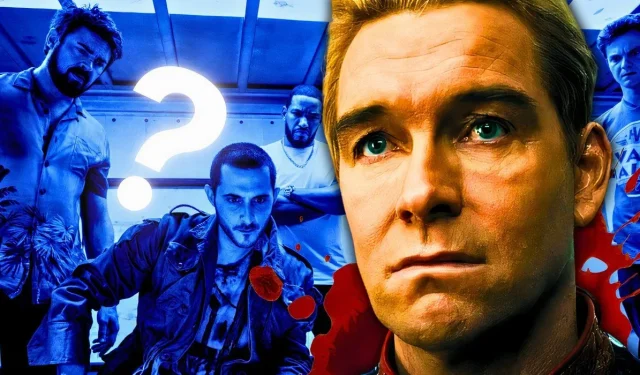Content Warning: This article contains multiple references to fictional portrayals of sexual assault and abuse.
The Boys comic series is renowned for its unexpected twists and shocking content. Its ability to surprise extends into the television adaptation, yet numerous revelations remain exclusive to the comics, mostly due to the constraints imposed by censorship on television. Whether examining the breathtaking surprises in comic lore or character-specific developments, such as those surrounding Homelander, the series consistently astonishes its audience.
The striking narratives of The Boys are not merely shocking for their provocative content; they also cleverly challenge the expectations of avid readers. Critics might argue that the crudeness in the series is often gratuitous, aimed solely at generating shock. However, beneath this surface lies a purpose-driven storytelling style where shocking visuals transition into unexpected narrative turns, keeping even the most astute readers alert.
10. Robin’s Death Happens Right Out of the Gate
The Boys #1 by Garth Ennis, Darick Robertson, Tony Avina, and Greg Thompson
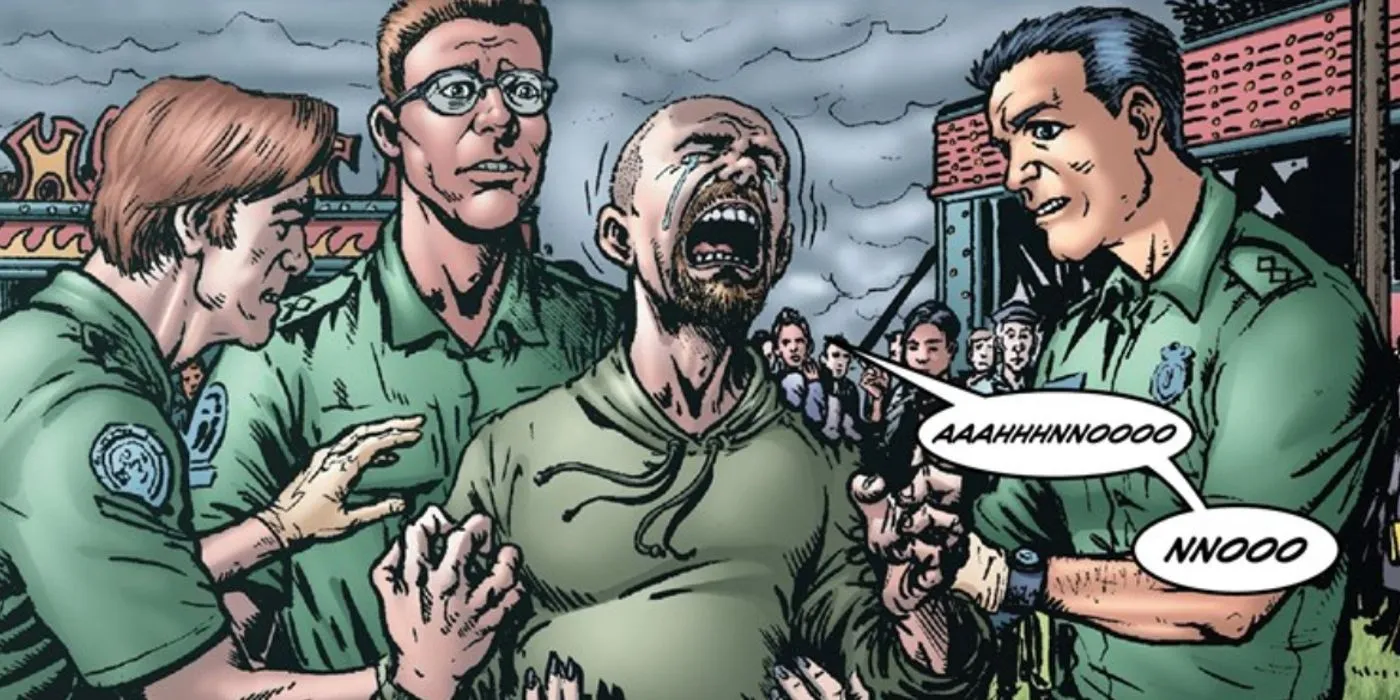
Despite her fleeting presence in both television and comic formats, Robin emerges as one of the most crucial characters in The Boys universe. Her tragic demise serves as the catalyst for the series, particularly shaping Hughie’s character arc. The early scenes of the comic depict Wee Hugh Campbell as he witnesses Robin fatally injured by A-Train’s super-speed, making her death not only pivotal but also a foreboding indication of the series’ potentially gruesome nature.
9. Homelander Reveals His Evil in His First Scene with Starlight
The Boys #3 by Garth Ennis, Darick Robertson, Tony Avina, and Greg Thompson
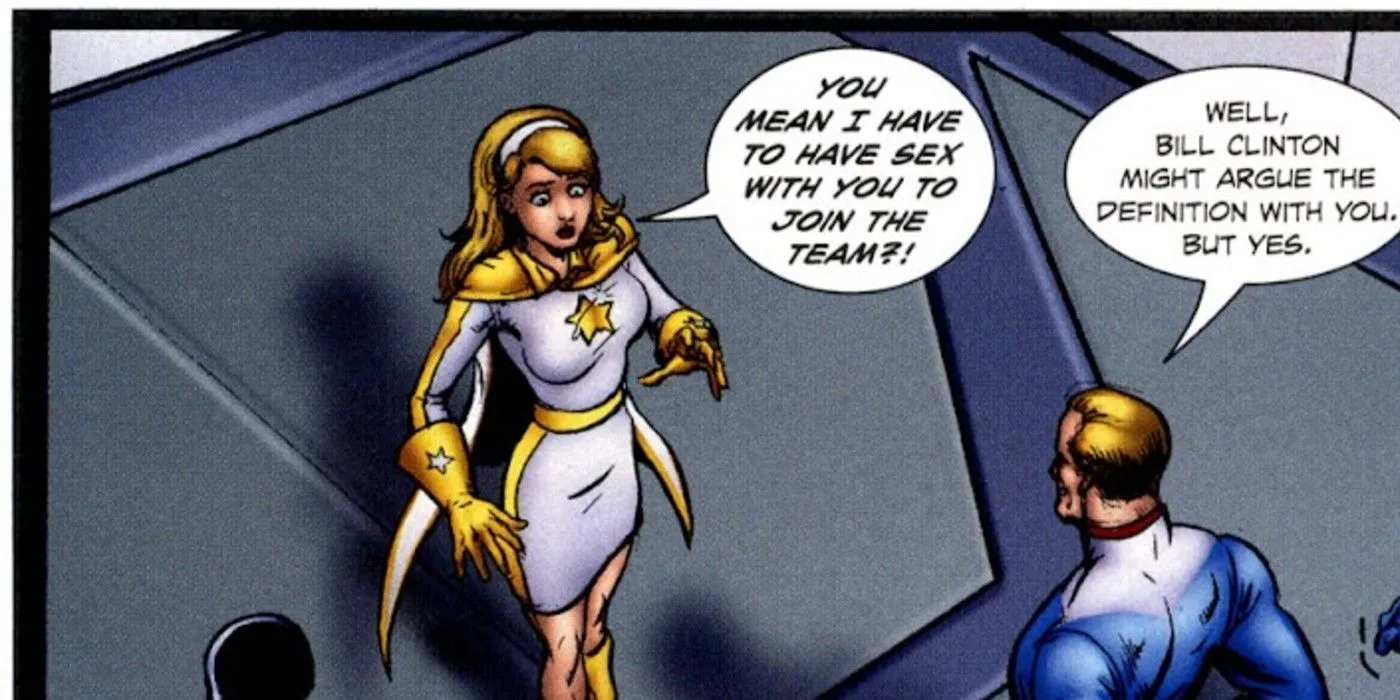
The introduction of Homelander in The Boys expertly establishes his role as a truly malevolent character, as he immediately solicits the new recruit, Starlight, for sexual favors. The other members of the Seven soon join in on this humiliating initiation, making it clear that conformity to their twisted norms is non-negotiable. This moment highlights the deeply ingrained dysfunction within The Seven and serves as a sharp critique of the corruption of those in power.
8. Blarney Cock Is the Legend’s Son, and the Legend Is Glad He’s Dead After Hughie Accidentally Kills Him
Blarney’s Death: The Boys #18 by Garth Ennis, Darick Robertson, Tony Avina, and Simon Bowland
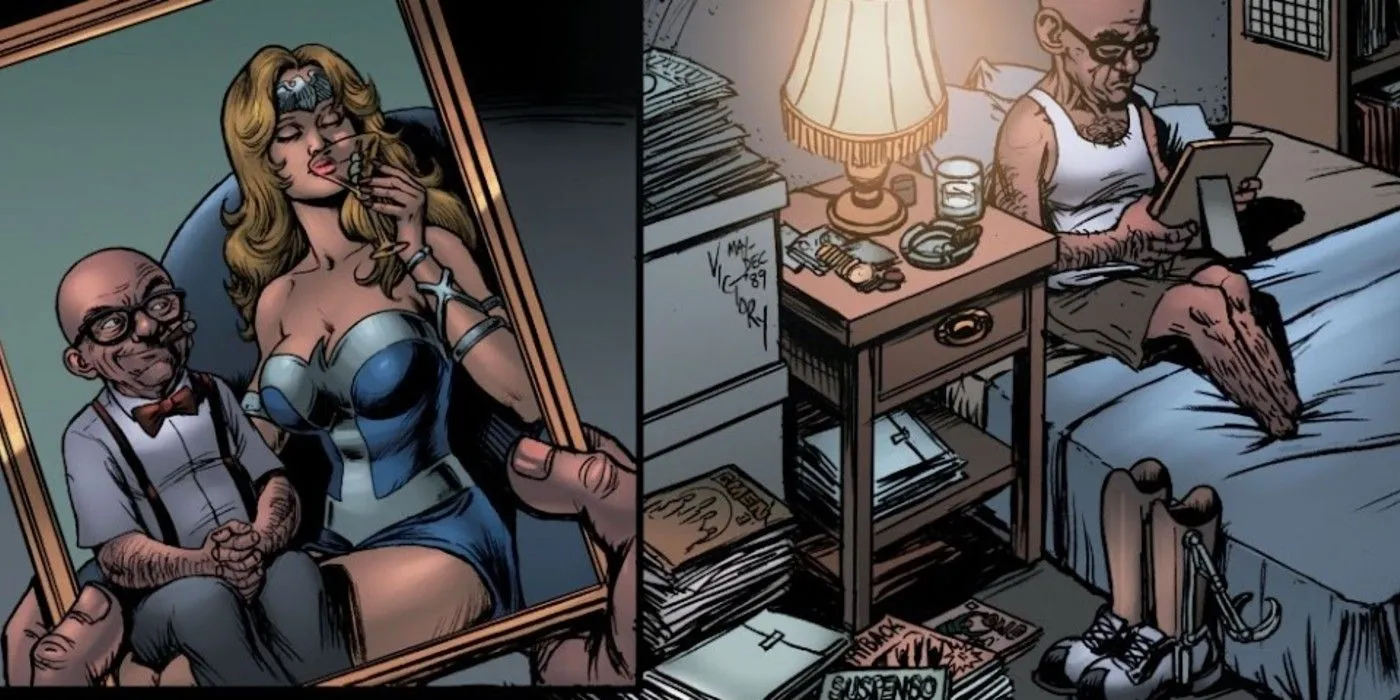
Blarney Cock’s introduction in The Boys is as shocking as it is revealing; not only is he a depraved superhero, but he also happens to be the product of an illicit affair between Queen Maeve and the Legend. This surrogate familial connection complicates the narrative further. After Hughie inadvertently kills Blarney during a skirmish, the Legend’s apparent indifference towards his son’s demise underscores the moral vacuity present in this parody of superhero narratives.
7. What Happened on 9/11…
The Boys #21 by Garth Ennis, Darick Robertson, Tony Avina, and Simon Bowland
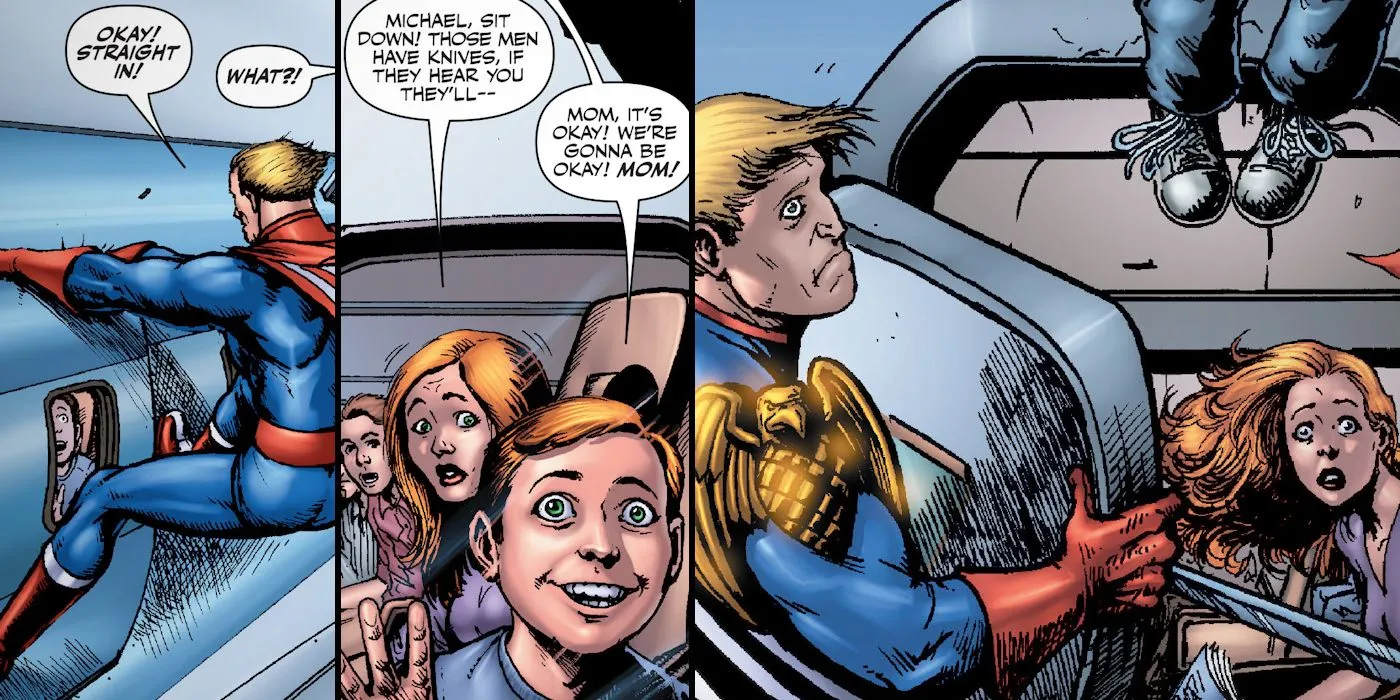
The infamous plane scene from the TV adaptation pales in comparison to its comic counterpart, which dives even deeper into tragedy. On September 11, 2001, the Seven’s inability to manage a crisis caused a catastrophic plane crash, resulting in horrifying images that evoke real-world tragedy. This sequence not only emphasizes the Seven’s profound incompetence but also lays the groundwork for a series of in-universe conspiracies, amplifying the social commentary on the ineptitude of those in power.
The Boys #29 by Garth Ennis, Darick Robertson, Tony Avina, and Simon Bowland
Although the television audience has yet to meet the G-Men, their darkly comedic nature in the comics establishes a sinister parody of beloved superhero teams. Under the leadership of John Godolkin, the G-Men’s horrifying backstory—which includes sexual abuse of its members—pushes the boundaries of what the series portrays as “heroic,”seamlessly fitting into The Boys’ exploration of moral corruption.
5. Queen Maeve Is The Boys’ Mole in the Seven, Not Her Super-Fan
The Boys #63 by Garth Ennis, Darick Robertson, Tony Avina, and Greg Thompson
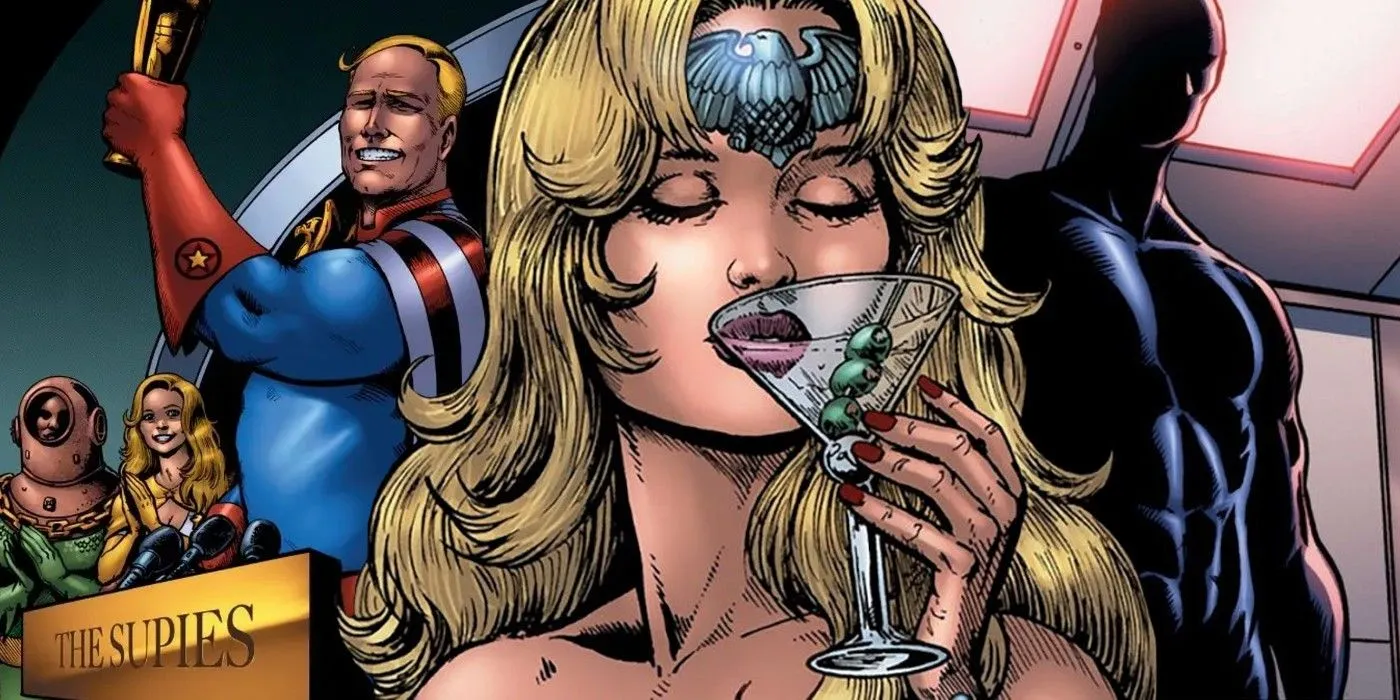
Initially thought to be a super-fan, Queen Maeve serves as an informant for The Boys, shedding light on the inner workings of the Seven. Her eventual betrayal and subsequent death at the hands of Homelander is as shocking as it is inevitable, considering the continual exploitation she endures. This plot twist highlights the tragic evolution of her character from complicit bystander to active player in their destruction.
4. Homelander Isn’t the One Who Killed Butcher’s Wife
Becky’s Death Is Depicted in The Boys: Butcher, Baker, Candlestickmaker #4 by Garth Ennis, Darick Robertson, Tony Avina, and Simon Bowland
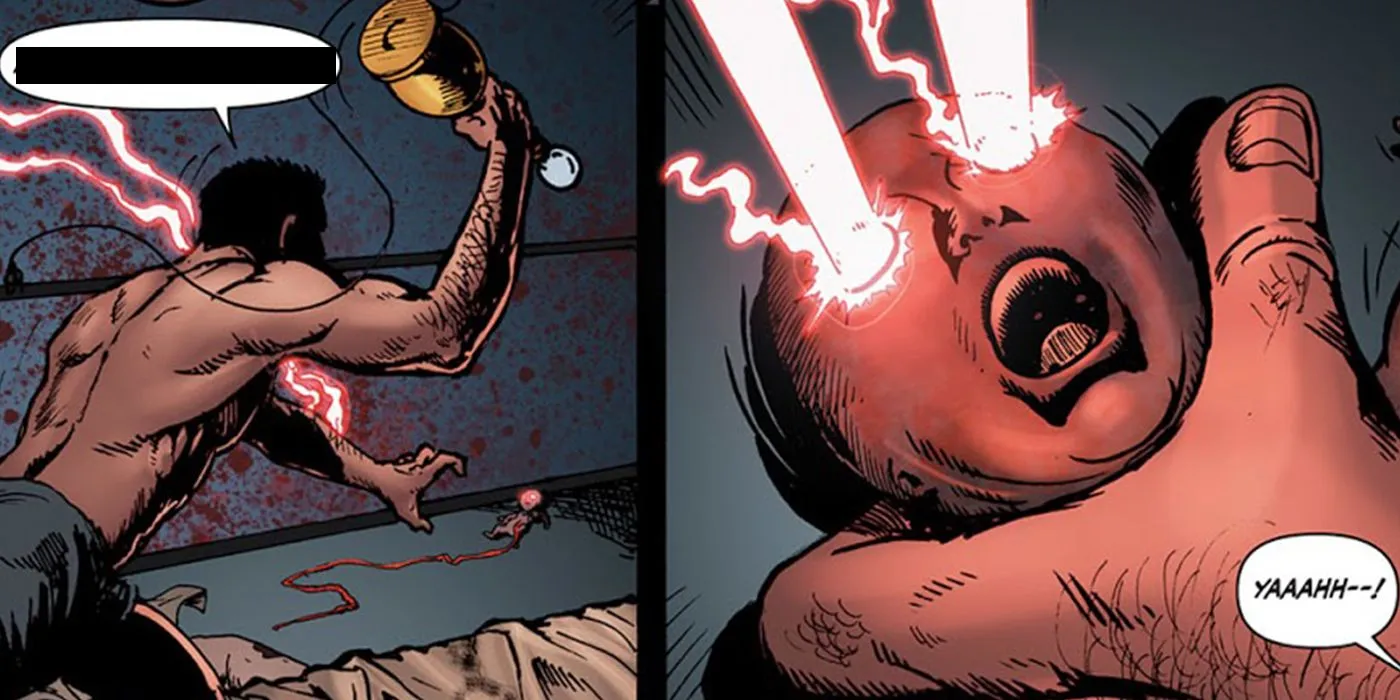
Initially, Billy Butcher’s vendetta against the Seven, particularly Homelander, stems from the belief that his wife Rebecca was a victim of Homelander’s brutality. However, as the narrative unfolds, it is revealed that Rebecca’s tragic death was caused by complications from a super-powered birth, with Black Noir ultimately being the one responsible. This shocking revelation transforms Butcher’s motivations and veers the story into unexpected territory.
3. Black Noir Is an Insane Homelander Clone
The Boys #65 by Garth Ennis, Russ Braun, John McCrea, Keith Burns, Tony Avina, and Simon Bowland
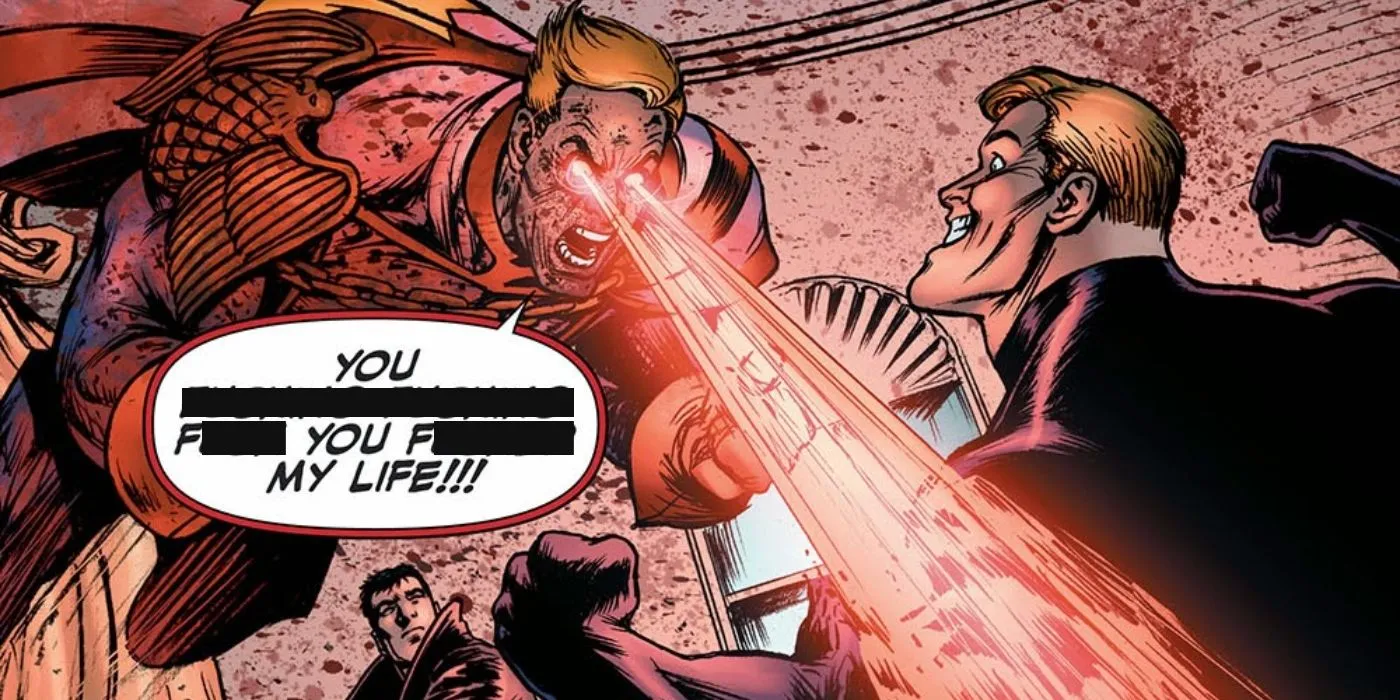
In a shocking twist, it is unveiled that Black Noir has been impersonating Homelander and is, in fact, a clone created with the intent of eliminating the original. This revelation challenges everything readers thought they understood about both characters and elevates the stakes. Black Noir’s true nature and superior abilities complicate the dynamics between the protagonists and antagonists in horrifying ways.
2. Butcher’s Final Plan to Commit Genocide
The Boys #65 by Garth Ennis, Russ Braun, John McCrea, Keith Burns, Tony Avina, and Simon Bowland
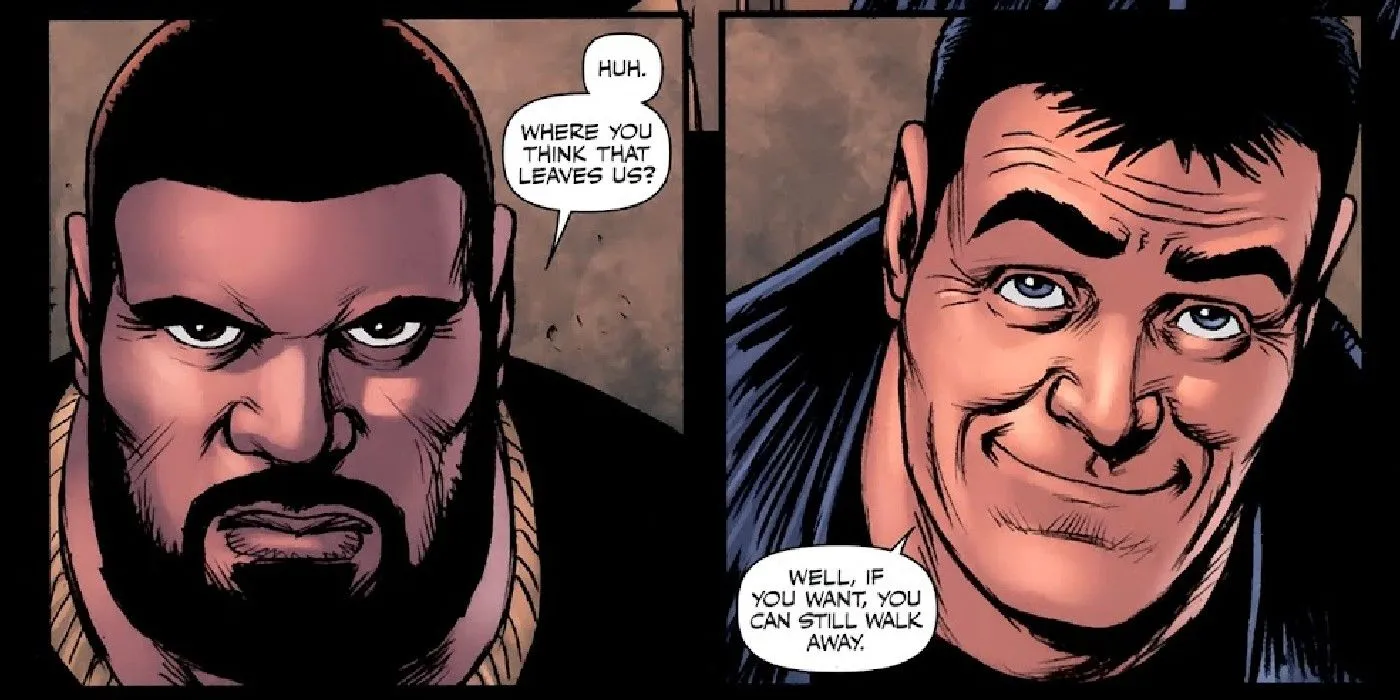
Upon defeating Black Noir, Billy Butcher reaches a devastating low, contemplating the use of a super-powered bomb aimed at exterminating all Supes. His transformation from an anti-hero to a villain serves as a poignant commentary on vengeance and corruption, shifting the audience’s perception of a character that once garnered their empathy and support. This tragic turn encapsulates Butcher’s descent into darkness, raising questions about the moral implications of his actions.
1. James Stillwell Outplays Jessica Bradley, Framing Her for His Crimes
The Boys #71 by Garth Ennis, Russ Braun, Tony Avina, and Simon Bowland
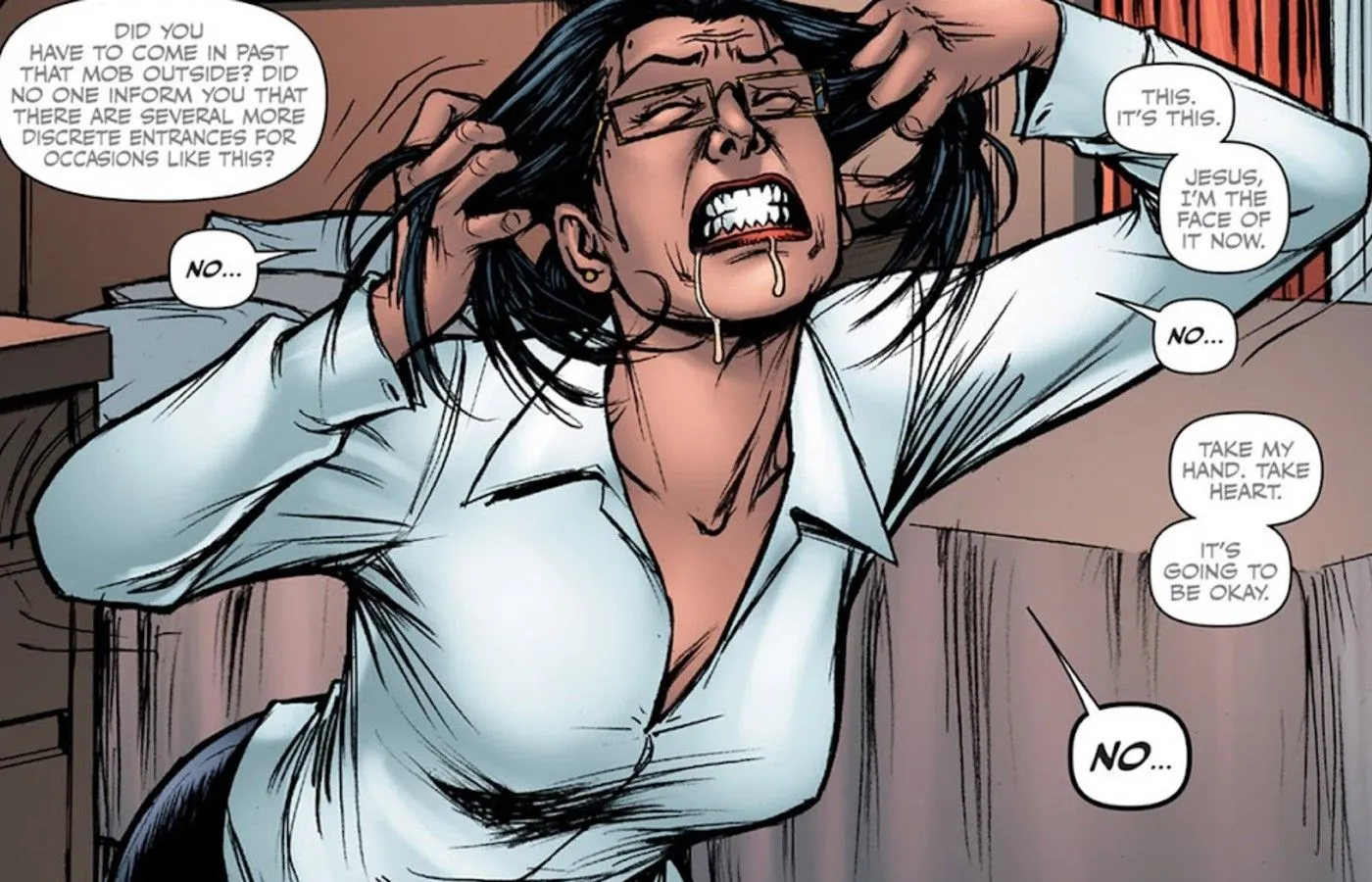
James Stillwell’s manipulation reaches a troubling climax when he betrays his assistant Jessica Bradley, framing her as the scapegoat for their joint misdeeds. This final act of betrayal not only cemented Stillwell’s malevolence but also severed Bradley’s trust in what she thought was mutual partnership. It highlights the ruthlessness of Vought and underscores the dark Machiavellian elements that run rampant in the world of The Boys.
